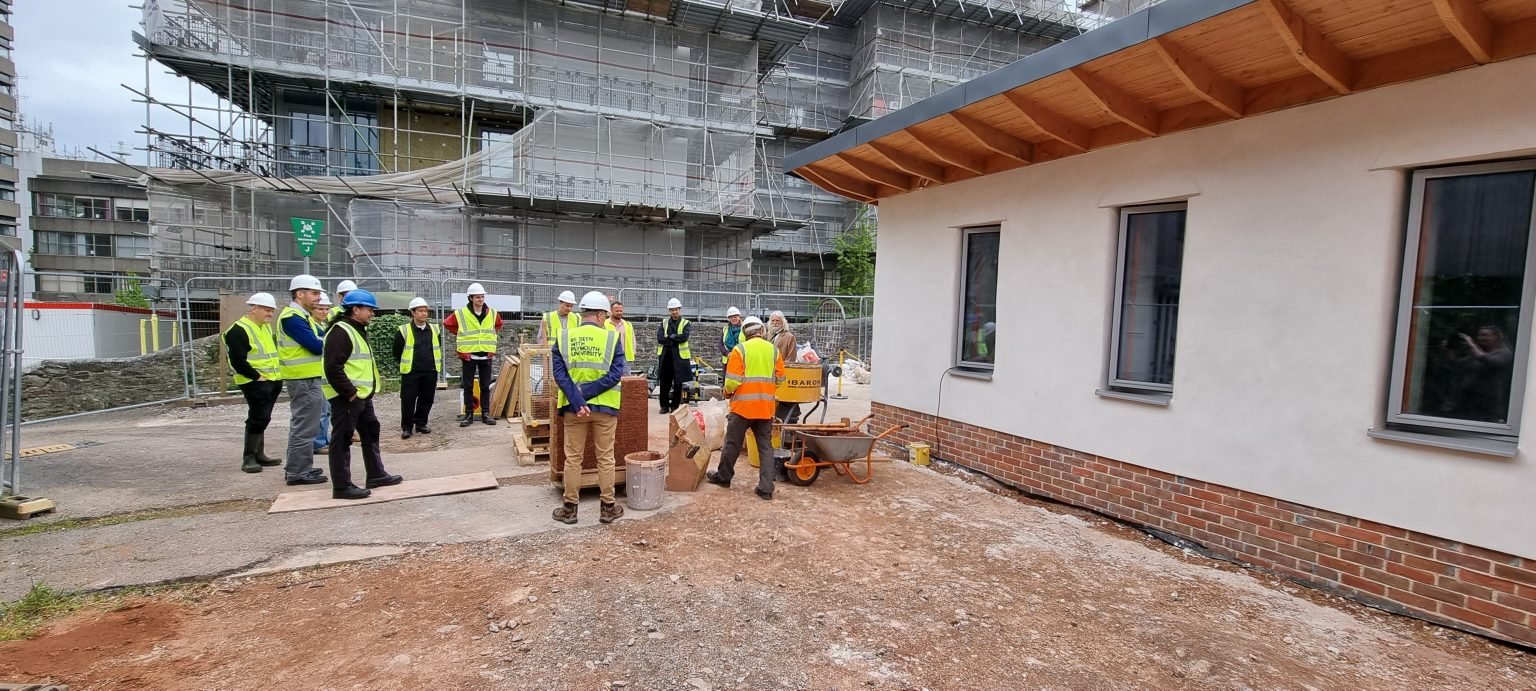CobBauge
The CobBauge project is part of the European Union to reduce carbon emissions of the FCE area by 2020 by 20% (2012/27 / EU).
The energy consumed for the building sector currently represents 40% of the total energy produced (UE2010), 60% of which is used by occupants to heat buildings.
The cob houses are commonly found in the Channel Regions of France and Great Britain. CobBauge is a creation of new techniques and methods for the preservation of buildings.
Cob is a mixture of earth and fiber, such as straw, which is then mixed with water and used to construct buildings.
-
Currently mass earth materials don't meet building regs for thermal conductivity. Other materials that do meet building regs typically have higher embodied carbon and lower positive health and wellbeing outcomes.
-
Design & Build two example buildings, Test & Measure and Training rollout of the use of these materials and techniques.
-
€ 4M Funding from Interreg, 6 project partners across two countries
-
Testing design and build methodologies, developing the required training for people to implement the use of these materials, construction of two prototype buildings and two commercial projects, controlled measuring of results
-
Clear simple documentation showing the results of the use of these materials and techniques, demonstration buildings, training programmes and videos.
-
The results are used to influence the design and construction process to use materials to decarbonise these industries
-
We aim to gauge uptake of the use of these materials and methods over the coming years. The measurement of the efficacy of these materials and methods in producing healthy and efficient buildings.
Training Tools and Technical Documentation
Downloadable CobBauge Guide for Builders (1MB)
Downloadable CobBauge Guide for Designers (5MB)
Downloadable Design Details (10MB)
Some of the CobBauge team…
EBUKI were partners in the exciting CobBauge project, bringing our skills and network to help achieve the project aims.
The CobBauge project is part of the work by the European Union to reduce the carbon emissions of the FCE area by 2020 by 20% (2012/27/UE). The energy consumed for the building sector currently represents 40% of the total energy produced (UE2010), 60% of which is used by occupants to heat buildings.
The cob houses that are commonly found in the Channel regions of France and Great Britain do not meet the current thermal regulations. So the objective of the CobBauge project was to create new cob materials and processes that are both economical and compliant with building standards while answering the needs for the preservation of the local historical heritage.
CobBauge won the prestigious Regio Stars competition, a major European award.
Sample wall showing intersection of cob and light earth mixes
The partners aimed to create four new cob mixes that were thermally and structurally tested to ensure they meet building regulations and significantly improve household energy efficiency.
The newly created cob mixes were produced from local soils, helping to reduce CO2 emissions by around 40 per cent compared to the production of traditional masonry materials. They reduce construction waste by a projected 16 tonnes per property, a saving of €2115 in terms of landfill costs.
The results were shared with professionals in the construction industry and a second phase of the project published building guidelines for the new cob mixes and trained over 500 builders and other professionals in cob construction methods.
It is hoped this will then lead to the construction of as many as 1,500 ‘CobBauge’ buildings on both sides of the English Channel over the next ten years.
Proposed CobBauge house
The CobBauge project was selected under the European cross-border cooperation Programme INTERREG V A France (Channel) – England co-funded by the ERDF and involves 5 French and British partners.
The first phase of the project to confirm proof of the project concept ran from 07/2017 – 03/2019 with a total budget of ˆ 1,097,485, with ERDF co-financing: ˆ757,265 (69%)
The second phase of the CobBauge project ran until June 2023 and has received a total budget of € 4.097.365,10 with total ERDF funding of € 2,827,181.91 (69%) from the Interreg VA France (Channel) England Programme, co-financed by the European Regional Development Fund (ERDF).
EBUKI remain a committed and active partner.
Project Lead:
Tom Morton
Training: Becky Little
Training: Rowland Keable
2018-2023, England and France
Many more images can be found in our EBUKI CobBauge Facebook album here
For more information including the latest exciting news and developments see:
The CobBauge project website
The CobBauge project Facebook page
The CobBauge project Twitter
The CobBauge project Linkedin
The CobBauge project Instagram
Please do get in contact with the project here








